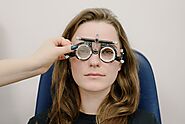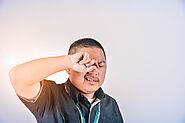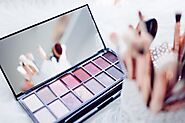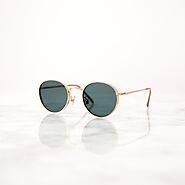-
About
- About Listly
- Community & Support
- Howto
- Chrome Extension
- Bookmarklet
- WordPress Plugin
- Listly Premium
- Privacy
- Terms
- DMCA Copyright
- © 2010-2025 Boomy Labs

 Goodrich Optical
Goodrich Optical
Listly by Goodrich Optical
Good eye care is important in childhood because that's when the eyes and vision develop. Proper eye care is very important to prevent age-related vision problems such as age-related macular degeneration (AMD) and cataracts in old age. But what if you're in your 20s and 30s age?
If you're like most young people in this age group, your eyes are most likely in overall good health - you may even have perfect 20/20 vision, with or without glasses or contact lenses. If you take the right steps to maintain good eye health, you can expect good eyesight for the next decade or so. Here are amazing tips for maintaining eye health as you grow.

As part of your healthy diet, choose foods that are high in antioxidants, such as B. Vitamins A and C; foods such as leafy greens, leafy greens, and fish. Many foods — especially oily fish like salmon — contain essential omega-3 fatty acids, which are important for the health of the macula, the part of the eye responsible for central vision.

Some foods contain antioxidants that can reduce the risk of certain eye diseases and eye damage from sun exposure, cigarette smoke, and air pollution. The antioxidants lutein and zeaxanthin act as natural sunscreens to protect your eyes from harmful blue light. Eggs, carrots, green leafy vegetables, red and yellow bell peppers, tomatoes, and corn are good sources of antioxidants.

Watching on a computer screen all day can cause eye fatigue and eye strain. If you're like most people, staring at a computer for long period makes you blink less often, which can lead to dry and uncomfortable eyes. To avoid eye strain, adjust the lighting to reduce glare and sharp reflections, rest your eyes briefly every 20 minutes, and try to blink consciously.

In childhood, the eyes grow and change rapidly. Watch out for problems like misaligned eyes - they can indicate a serious eye condition. Put young children distant from cleaning products and sharp objects to protect them from permanent eye illness. Spending too much time in front of a screen can cause dry eyes and eye strain. Myopia can develop in children who spend long hours at work. Stay up to date with vaccines. If you notice any injuries or changes to your child's eyes, schedule an eye exam.

The sun emits harmful ultraviolet (UV) rays that can damage your eyes in the long run. Choose sunglasses with UV-A and UV-B protection with the appropriate coating. Also, apply sunscreen around the delicate skin around your eyes and wear a hat or eye protection in addition to sunglasses for better protection.

Many eye diseases are inherited. You are much more likely to develop macular degeneration if a close family member has the condition. Your chance of glaucoma is four to nine times greater than normal if a family member has it. Ask family members about their eye conditions. This can help you and your eye doctor look for conditions before they occur. Quick analysis and cure can help prevent vision loss.

Maintaining hygiene is very important in the current situation as the COVID-19 outbreak is real. Doctors advise people to wash their hands more often or before and after work. People who wear contact lenses should be more careful when touching their eyes because they can easily become infected. Complete eyecare near Holt recommend washing your hands to put contact lenses in your eyes.

Smoking exposes your eyes to tremendous levels of oxidative pressure. Although the link has not been recognized, smoking is known to grow the chance of several health ailments that affect the eyes.

Regular exercise can help you in many ways. You need to add walking to your schedule after you eat. Physical exercise boosts blood movement in your body. Your eyes also need the right amount of oxygen to function and get rid of toxins. When you exercise, it allows oxygen levels in your eyes and improves blood circulation.

Makeup for your eyes must be of high quality, otherwise, the use of poor-quality products can affect your vision. Bacteria and small amounts of material can enter the healthy eye and cause an eye infection. After three months, you will need to change mascara and eye products.

To protect your eyes from harmful ultraviolet (UV) rays, choose sunglasses with UVA and UVB protection. Also, wearing a fringed hat will greatly reduce the amount of UV radiation that slides down the sides of your glasses.
